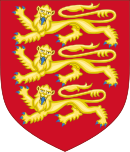A lord-lieutenant is the British monarch's personal representative in each lieutenancy area of the United Kingdom. Historically, each lieutenant was responsible for organising the county's militia. Lord-lieutenant is now an honorary titular position usually awarded to a retired notable person in the county.

A Scout County is an administrative division within The Scout Association of the United Kingdom. There are currently 115 Counties and Areas in the United Kingdom. These bodies are responsible for providing programmes and support for their member Scout Districts.

The schools in England are organised into local education authorities. There are 150 local education authorities in England organised into nine larger regions. According to the Schools Census, there were 3,408 maintained government secondary schools in England in 2017.
England is divided by a number of different regional schemes for various purposes. Since the creation of the Government Office Regions in 1994 and their adoption for statistical purposes in 1999, some historical regional schemes have become obsolete. However, many alternative regional designations also exist and continue to be widely used.
The Custos rotulorum, Latin for "keeper of the rolls" within civil government, is the keeper of the English, Welsh and Northern Irish county records. The Custos is also the principal Justice of the Peace of the county and keeper of the records of the sessions of the local courts and, by virtue of those offices, the highest civil official in the county. The position is now largely ceremonial and generally undertaken by the Lord Lieutenant of the county.
The following is a list of articles about the geology of English counties:

The War Damage Commission was a body set up by the British Government under the War Damage Act 1941 to pay compensation for war damage to land and buildings and " 'fixed' plant and machinery", throughout the United Kingdom. It was not responsible for the repairs themselves, which were carried out by local authorities or private contractors.
Provincial Grand Lodges are administrative subdivisions of a Grand Lodge. Under the jurisdiction of the United Grand Lodge of England, they are the regional governing bodies of Freemasonry in the England, Wales, the Isle of Man, and the Channel Islands.
The 2024 Women's Twenty20 Cup, known for sponsorship reasons as the 2024 Vitality Women's County T20, was the 15th edition of the Women's Twenty20 Cup, an English women's cricket Twenty20 domestic competition. It took place between May and August 2024, with 35 teams taking part, organised into four regional groups. It ran alongside the ECB Women's County One-Day.



